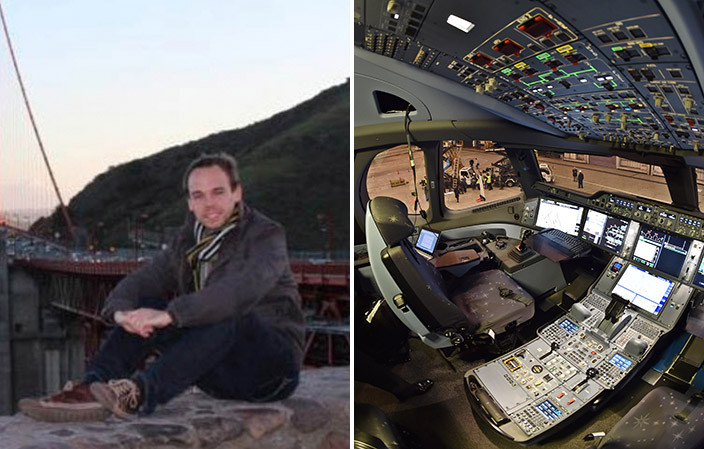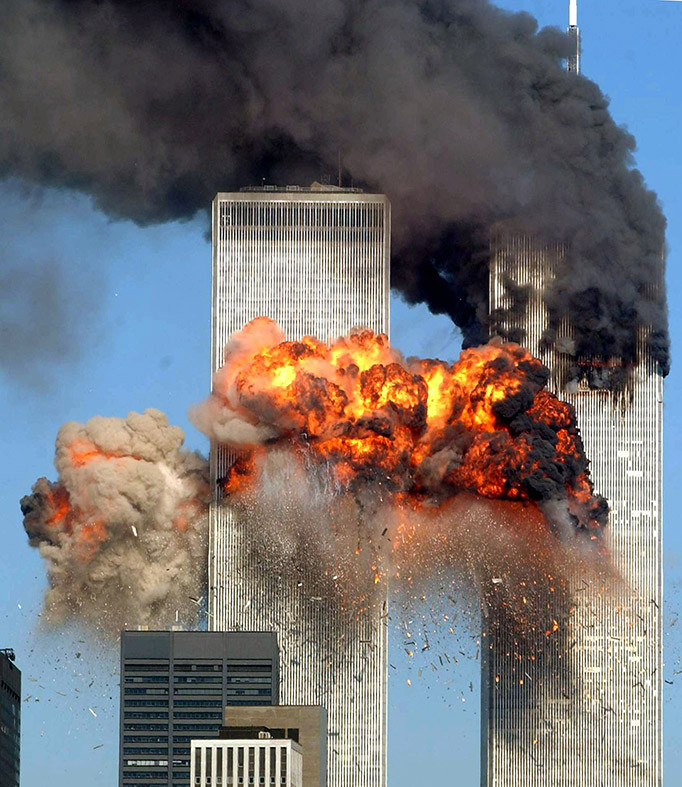Andreas Lubitz Germanwings crash: How 9/11 security unleashed nightmare in the French Alps

A cruel irony in the fatal crash of the Germanwings flight may be that security measures meant to protect the plane actually doomed to death the scores of innocent people on board.
Details have emerged of the last moments of the Airbus A320 in which the flight captain tried frantically to access the cockpit in a bid to avert the disaster unfolding in the French Alps, on Tuesday.
Black box recorder data reveals a range of security measures on the cockpit door – all backed up by the unseen hand of strictly enforced aviation regulation – made it impossible for him to get back in to his cockpit and wrest back control from his co-pilot, Andreas Lubitz.
The tragic consequences of this unbreakable security have been writ large on the faces of relatives of Lubitz's 149 victims - some of them young people.

Forged in the aftermath of the 9/11 attacks on New York in 2001, the combination of tough security and regulation is designed to keep people away from the controls of passenger planes. But in the case of this French Alps air tragedy, they may have inadvertently ended up aiding and abetting a co-pilot with a death wish. What a bitter unintended consequence, indeed.
Access to the cockpit is controlled from inside the cockpit. Lufthansa said the door on its Airbus A320 simply could not have been opened from inside the cabin. This means the captain's efforts would have been entirely futile, although it did not stop him trying his best in the plane's final moments.
Rules governing access to cockpits on passenger flights are simple. Nobody may enter it except the pilot and co-pilot after air-traffic control at an airport has given clearance for take-off. Not even the back-up pilot can pop in unless it's their turn at the controls.
This meant Lubitz held total authority over who could enter the cabin and there was nothing his captain could do about it. It's a grim testament to the efficacy of rules governing 21st century cockpit security in modern planes, that the 28-year-old could usurp command like this.
Governing this area of aviation is the industry bible of rules and regulations, called SARPs – Standards and Recommended Practices.
It is drawn up by the International Civil Aviation Organisation (ICAO), which is a heavyweight body affiliated to the United Nations. Practices on board Germanwings planes are regulated by the European Aviation Safety Agency (EASA), which enforces the SARPS code. Air giant Lufthansa – which owns Germanwings – is automatically signed up to SARPS by dint of the state of Germany's membership of the EU.
Regulators have teeth to address breaches of the rules of the air, which has helped garner a safety track record for the aviation industry which outstrips all other modes of transport. The rules of the air under which Lubitz - and everyone else who boards a plane - flies, is a legal document. It's the reason we see stories of holidaymakers ending up in criminal courts for causing uproar on flights. They are tightly enforced for obvious reasons, in the post-9/11 aviation world.
Indeed, this French Alps crash is the first for Germanwings, which possessed an spotless safety record until this week. But the regulatory rigour and high standards behind this success story were not designed to thwart a co-pilot with mens rea, who was apparently ready to kill 149 people for reasons as-yet unknown.
The freak nature of this week's tragedy was underlined by flight expert Dr Anil Padhrea, who lectures on aviation at Kingston University. He told IBTimes UK: "We are talking about a plane which was designed and built in Europe by an airline with an exemplary safety record, which crashed in European airspace. You do not hear of this happening, except very rarely."
Worryingly, Lufthansa chairman Carston Spohr has said the crash was beyond the realms of the security measures and regulation. Addressing reporters two days after the crash, he said: "You can never exclude such an individual event. No system in the world could manage to do that."
For anyone who has stepped aboard a flight, this point may be the most disturbing thing; that the SARPs rulebook is powerless against a pilot who wants to deliberately crash his plane.
© Copyright IBTimes 2025. All rights reserved.






















